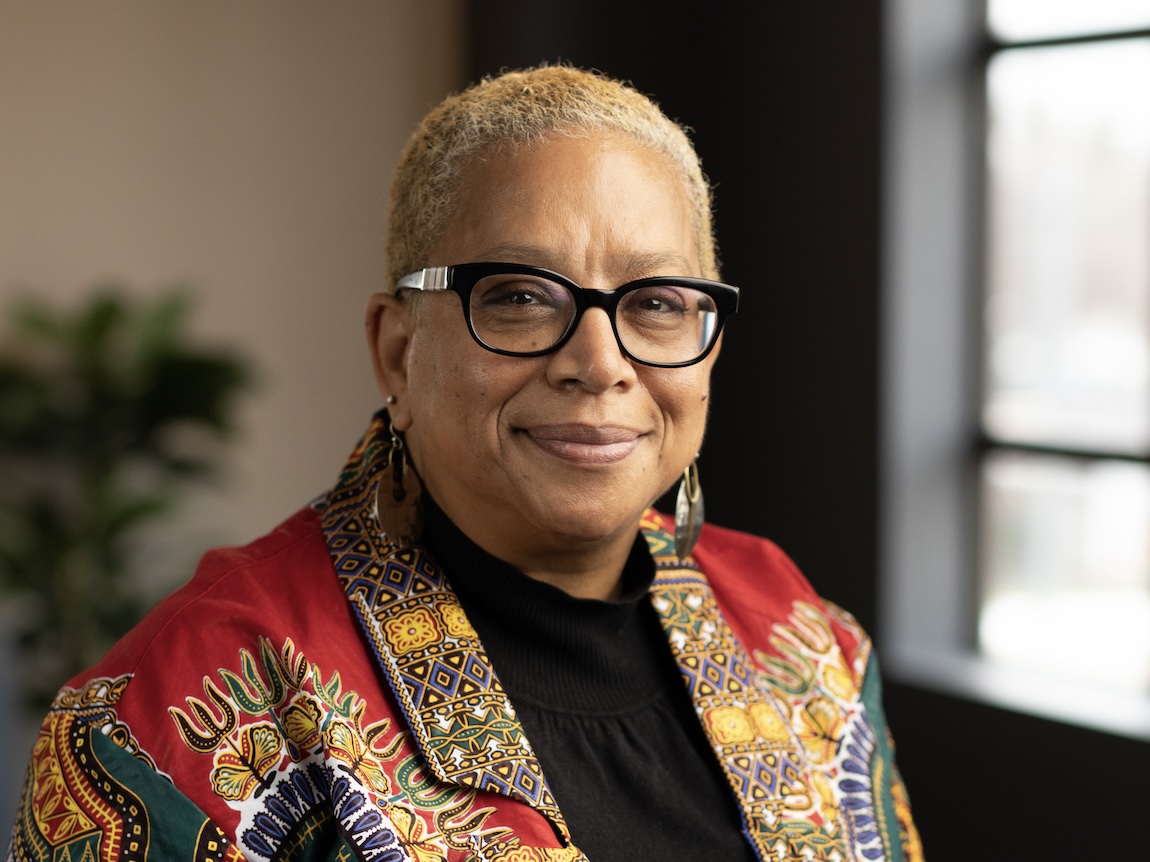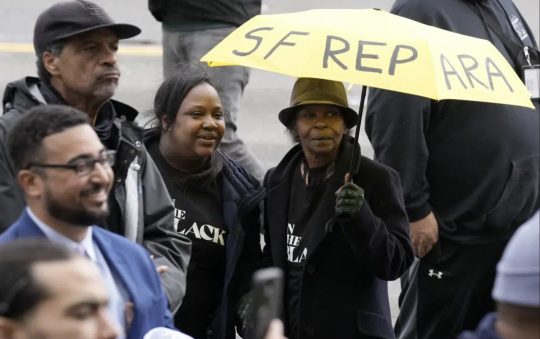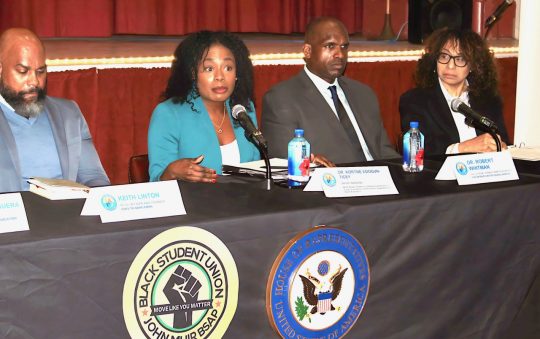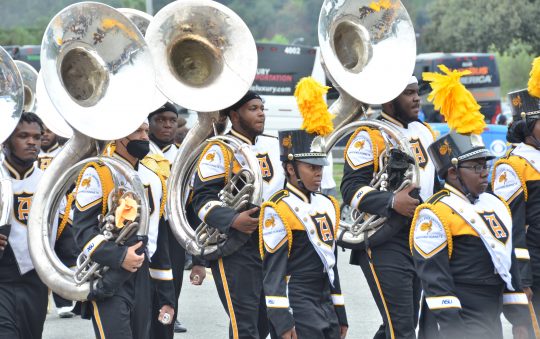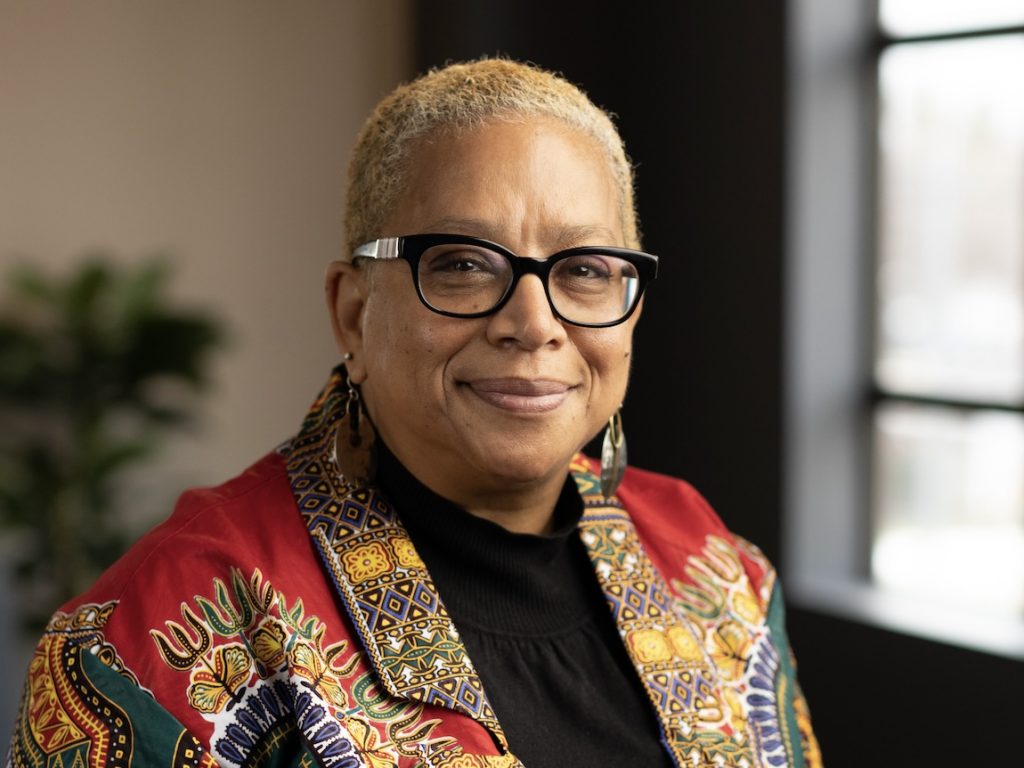
The pursuit of freedom and a better life for Black and African Americans has been wrapped up in our access to educational opportunities since arriving on the shores of this land over 400 years ago. I vividly recall my mother demanding that my four siblings and I complete high school and go on to college.
My mother knew that an education would open doors of opportunity and, ultimately, a better life. Neither of my parents attended college prior to marriage and children, but attending college was not an unfamiliar concept in my home.
My two oldest siblings completed trade schools in bookkeeping and welding to create work opportunities. Another older sister went off to a highly selective university on a scholarship after a bright and shining high school performance. Even my younger sister went off to the University of California, Berkeley, after high school as a top-notch scholar. My mother preached hard work and persistence to my siblings and me, which we now call “grit.”
But what happens when grit is not enough? What happens when the grit and persistence you give aren’t met with equitable practices and policies by the institution? What happens when you aren’t seen or valued by a system where access was granted due to changes in the law but not the heart?
Related Stories
Prop 34 Aims to Expand Medi-Cal Prescription Drug Funding — With Restrictions
Kei Kamara Finds Unity, Success in Soccer
I grew up in the late 1970s in north Long Beach, which borders Compton, Carson, and the Paramount, Bellflower communities. My neighborhood was racially mixed but was beginning to show an influx of change with Black and African Americans moving into the areas.
My middle and high school in the neighborhood was also racially mixed but once again began to show the departure of Whites from the community and an increase of people of color into the neighborhood. Most instructors and administrators in both my middle and high school were predominantly White, but the race of the student body was shifting.
Neither middle nor high school was very engaging or interesting for me, and nutrition and lunch were the most exciting times of each day. No subject or teacher caught my attention or gave me a desire to engage. And quite honestly, I didn’t believe that I possessed the academic intellect to be a successful high school student, let alone go to college. I consistently skirted by earning “C” grades and, on a rare occasion, a “B” in subjects such as dance.
When senior year arrived, there was no conversation with the counselor about college. They confirmed that I had obtained enough credit to graduate and sent me on my way. After that encounter, I was convinced college was not for me and sought a good-paying job. I worked a variety of jobs after high school, but my mother continued to urge me to go to college.
After a couple of years, I realized my options were limited without a degree, and my mother was right. So, I sought out higher education but was still not convinced I belonged. I struggled academically for the first few years until landing in the student support program Extended Opportunity Programs and Services, where I found guidance, community, and a road to academic success.
The opportunity to attend college for many individuals of color comes with apprehension, intimidation, and a sense of fear after a K-12 experience where they were often treated with disdain, resulting in a lack of interest in any additional education pursuits. For many Black and African American students, the K-12 experience may be perceived as hostile, uncaring, and unrelatable, resulting in no sense of belonging, reduced academic motivation, and a lack of belief in their abilities.
Many Black and African American students are re-introduced to the educational journey at a community college, where they often encounter similar experiences from high school. A curriculum that does not reflect their values or experiences, faculty that doesn’t look or sound like them, and an unwelcoming environment.
California Community College programs have been created and designed for Black students to improve their experiences and result in better outcomes. Programs such as Umoja Community, African American Male Education Network and Development, and Men of Color Initiatives are working to address the holistic needs of Black students in the California Community College system to impact persistence, course completion, and degree obtainment.
The principles of these learning communities and programs are centered on culturally relevant pedagogical practices of the African diaspora. These practices are infused into the curriculum, coursework, workshops, social engagement, and rituals the students experience in these programs. Research has shown that Black students in these programs outperform their counterparts in course completion and degrees earned. Many of these pedagogical practices are found and modeled after our nation’s Historically Black Colleges and Universities (HBCU).
HBCU took on the responsibility of creating academic environments for Black and African Americans that allowed them to reach their full potential and share their gifts with not only their community but with the world.
These institutions, by their very nature, are Black Serving Institutions. HBCUs were and continue to be a place where Black and African Americans can pursue their dreams and goals without any limitations. Most importantly, HBCUs provide students who are low-income, first-generation, and from underrepresented populations the opportunity to change the trajectory of their lives.
In 2015, the California Community College Transfer Guarantee Pathway Agreement to HBCU Project was established to create additional transfer pathways for California community college students who were being shut out of the state’s CSU and UC system’s transfer option due to overall impaction. The pathway currently offers guaranteed admission to approximately 30 partner HBCUs utilizing two options, which include completion of a transfer degree or 30 transferable units with a minimum 2.0 Grade Point Average. Between 2015 and 2020, there have been over 400 California community college students who have applied and transferred to one of the partners HBCUs, of which 150 have graduated with a bachelor’s degree.
Senate Bill 1348, Postsecondary Education: Designation of California Black-Serving Institutions, authored by Senator Steven Bradford, recognizes colleges and universities that excel in providing support, services, and resources to their Black and African American student population. This designation is critical for institutions seeking to build a framework for Black and African American student success that includes academic goals, equity goals, strategic plans with identified components, and academic outcomes.
In closing, the Designation of California Black Serving Institutions will benefit the partner HBCUs by clearly identifying those California Community Colleges that are intentionally supporting and serving Black and African Americans. Thus, the partner HBCUs will be able to develop targeted outreach and recruitment of well-prepared Black students.
Helen P. Young, Ed.D., is the Assistant Project Director for the California Community Colleges Transfer Guarantee Pathway Agreement to Historically Black Colleges and Universities and the Co-Founder of Pipeline to Possibilities.



